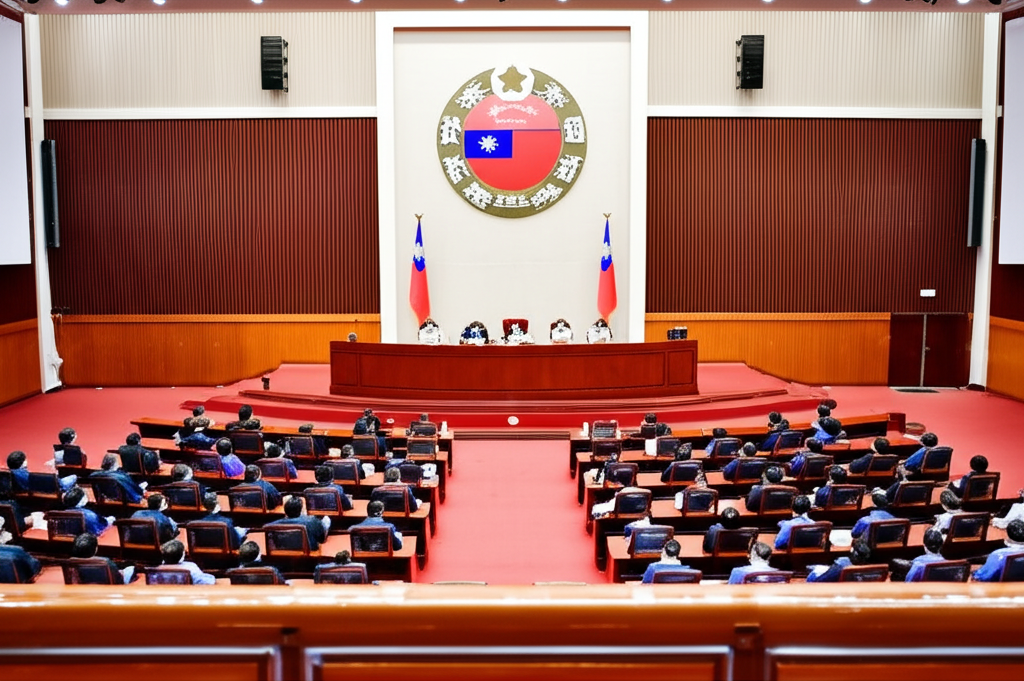Taiwan's Legislature Advances Controversial Referendum Bills: Death Penalty and Martial Law in Focus
Opposition Parties Push for Referendums on Capital Punishment and Martial Law Amidst Political Maneuvering

Taipei, March 25th, 2024 - In a significant development, Taiwan's Legislature witnessed a contentious session culminating in the passage of a motion to advance two Kuomintang (KMT) referendum proposals. The proposals, focused on "opposing the abolition of the death penalty" and "opposing martial law," will proceed to a second reading without undergoing a committee review.
The motion's passage was secured by the combined support of the KMT, the main opposition party, and the Taiwan People's Party (TPP), the third-largest party. Lawmakers from the ruling Democratic Progressive Party (DPP) voted against the measure.
This move brings closer the possibility of Taiwanese voters weighing in on critical issues through national referendums. The "opposing the abolition of the death penalty" proposal would gauge public opinion on capital punishment, which remains legal in Taiwan, albeit with infrequent enforcement. The "opposing martial law" proposal addresses the specter of authoritarian rule, recalling the 38-year period prior to Taiwan's democratization, which began in the 1980s.
The specific questions proposed for the referendums are as follows:
- "Do you agree with the policy that judges in appellate courts do not need unanimous agreement to sentence a defendant to the death penalty?"
- "Do you agree the government should avoid war and prevent Taiwan from becoming a place of martial law, where youth die and homes are destroyed, as in Ukraine?"
However, the practical impact of these referendums is debatable. The DPP-led government currently does not advocate for abolishing the death penalty nor for imposing martial law.
Lee Chin-yung (李進勇), Chairman of the Central Election Commission (CEC), has stated that the opposition parties' proposed referendum questions "would have no effect even if passed" because they seek to prevent the government from enacting policies it doesn't support.
The legislative proceedings were marked by significant tension. Earlier in the day, DPP lawmakers occupied the podium to prevent any discussion of the proposed referendums, leading to a temporary suspension of the meeting by Speaker Yuan Han Kuo-yu (韓國瑜).
As the session neared its scheduled end, DPP lawmakers vacated the podium. However, the Speaker subsequently resumed the meeting, triggering protests from DPP lawmakers, including Wu Szu-yao (吳思瑤), who displayed placards and voiced objections. Ker Chien-ming (柯建銘), the DPP caucus whip, attempted to disrupt the vote.
Despite the protests, the KMT and TPP, holding a majority of seats, successfully passed the two referendum proposals to a direct second reading, bypassing the committee review phase.
